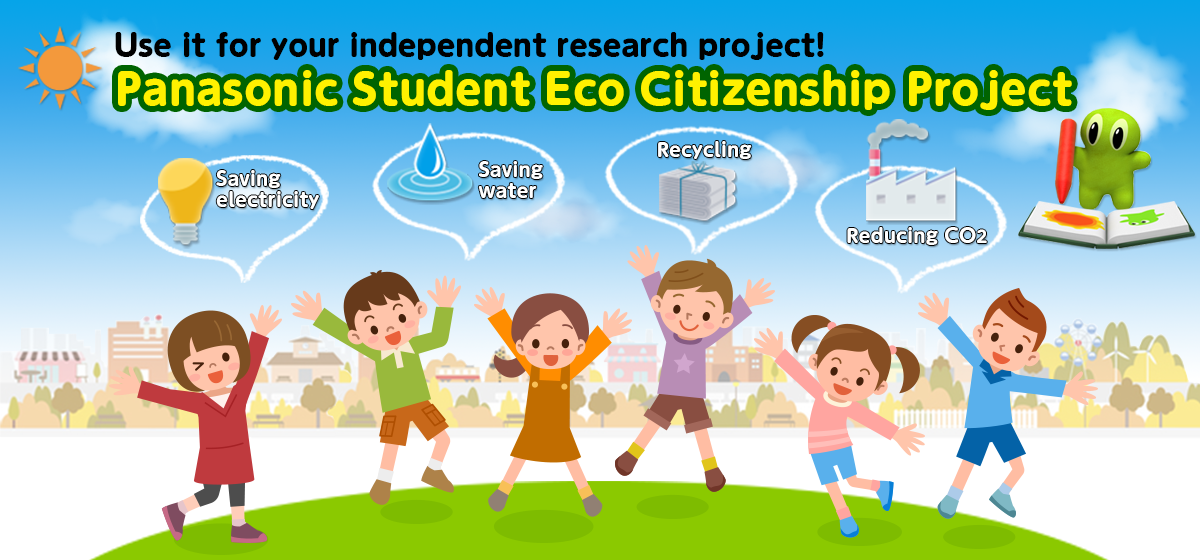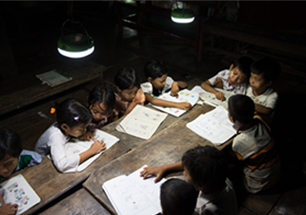
We must protect our planet’s environment to create a future in which we can live without worry. However, the reality is that we are harming the environment as we seek greater convenience in our lives. The water, soil, and air are getting more polluted, and abnormal weather is occurring...
We must change this reality as soon as possible! And that’s why we must adopt thinking and behaviors that help improve the environment.
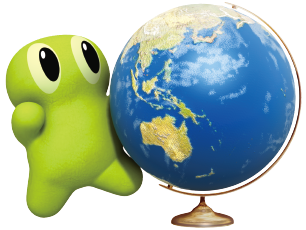

Here are some ways you can help protect and preserve the global environment.


Light is essential in our daily lives. But we need more than just light―we must also have the electricity that produces light. However, the main resources for generating electricity (such as oil, charcoal, and natural gas) are limited. This makes it very important to save electricity.
Save electricity
● Turn off lights whenever you don’t need them.
● Don’t leave the TV on when no one is watching it.
● Grow bitter gourds (goya) and other such plants to make “green curtains” and use air conditioners sparingly.
● Switch to LED lights.
● Eat vegetables that you grew in your own garden.


People and other living things need water every day. Although we use and drink water without really thinking about it, there is a limit to how much is available. So do your best not to waste it.
Save water
● Don’t leave the water running.
● Use leftover bath water to do laundry.
● When showering, turn off the water when you don’t need it (such as when you’re not rinsing your body).


It is very important to keep the environment comfortable for us to live in by not polluting it. A good way of doing this is to separate and recycle trash so that resources can be used effectively.
Reduce garbage
●Pick up trash and think of ways to reduce the trash you produce to keep the environment clean.
● Carry a reusable bag instead of getting plastic bags when shopping.
(This saves oil resources because oil is used to make plastic bags. It also reduces the CO2 that is generated when plastic bags are incinerated.)
● Don’t buy or make too much food. And don’t leave food uneaten.
Recycle
● Sort and dispose of your trash in ways that make recycling easier.
(Recyclable trash includes plastic bottles, empty cans, empty bottles, and old newspapers and magazines)


Producing electricity through thermal power generation (i.e., by burning oil, coal, natural gas, and the like) emits carbon dioxide (CO2). CO2 acts as a greenhouse gas “blanket” that traps heat from the Earth that would normally be released into space. This is what causes global warming. So avoiding and/or reducing our use of thermal power generation a very good idea.
Save electricity as a way of reducing CO2 emitted by thermal power generation.
● Save energy in the ways described under “Save AKARI (light)” above.
Plant and grow trees to increase vegetation that absorbs CO2 and releases oxygen.
● Water trees and flowers.
● Plant seeds.
● Stop using disposable chopsticks and reduce the amount of paper you use so that fewer trees are cut down.

These examples can give you some ideas if you’re not sure what to write about.
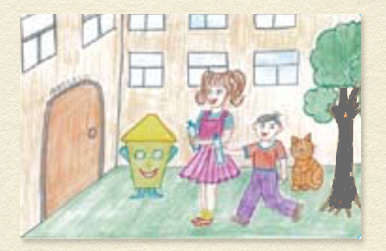
This person found a lot of litter lying around the entrance of her apartment building, so she made an amusing trash can to put there. And the amount of litter decreased! Now that’s a good idea! (Russia)
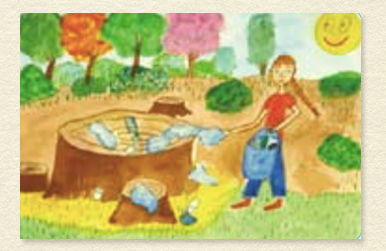
This person noticed that there was trash lying around where people like to relax in the park. So she brought it home with her and put it in the garbage. And this made the park more pleasant for everybody.(Ukraine)
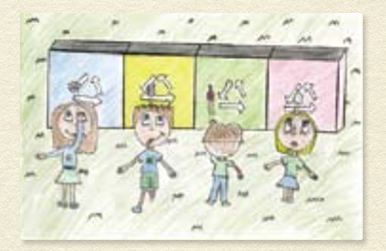
This person found out that bags, fashion accessories, and even houses can be made from sorted recyclables. Recycling is really cool! (Brazil)
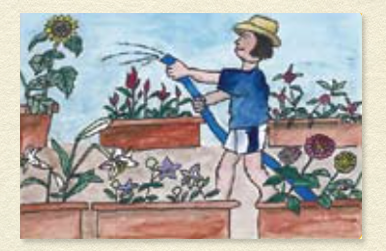
This person did the watering for her grandmother, who loves flowers. Plants absorb CO2 and produce oxygen, so by watering the plants, she helped reduce CO2. (Japan)



